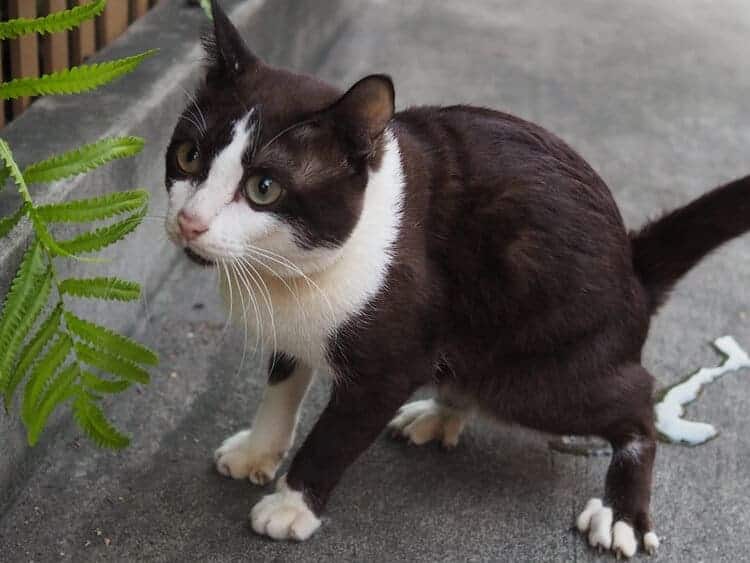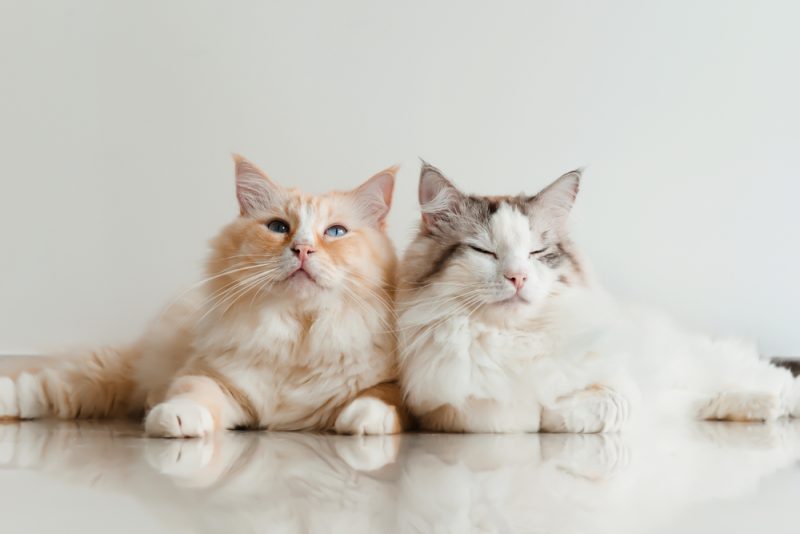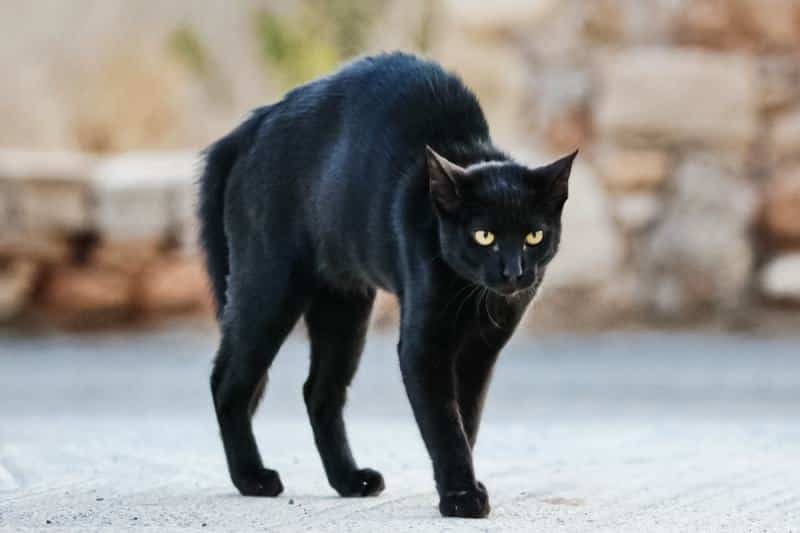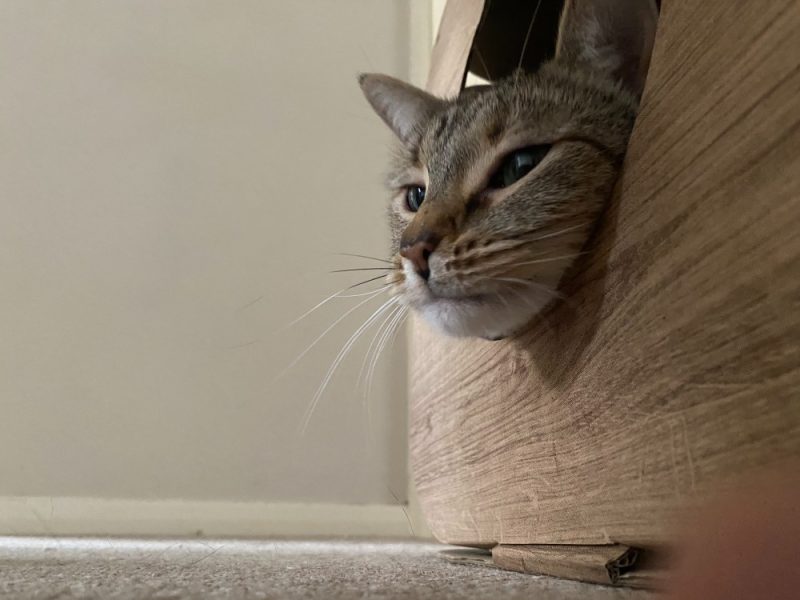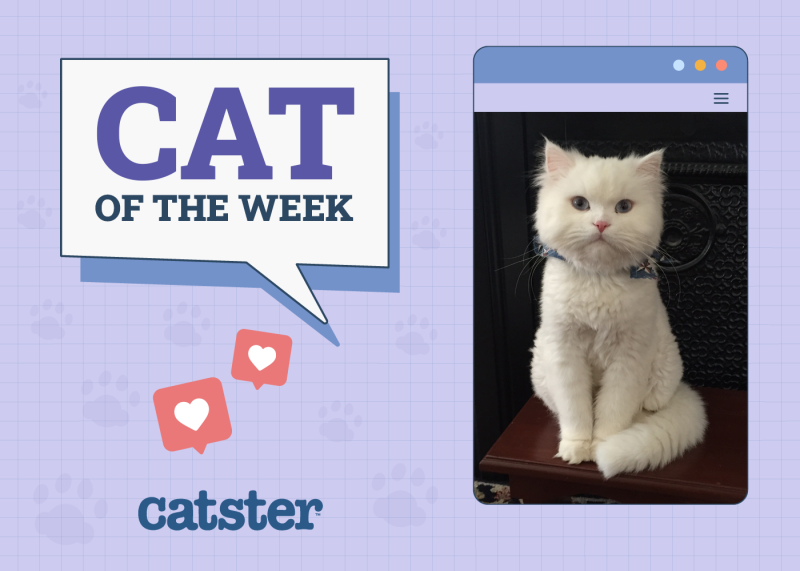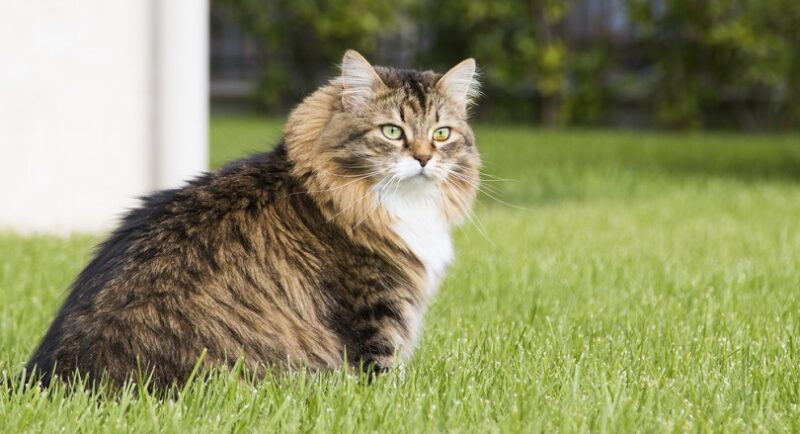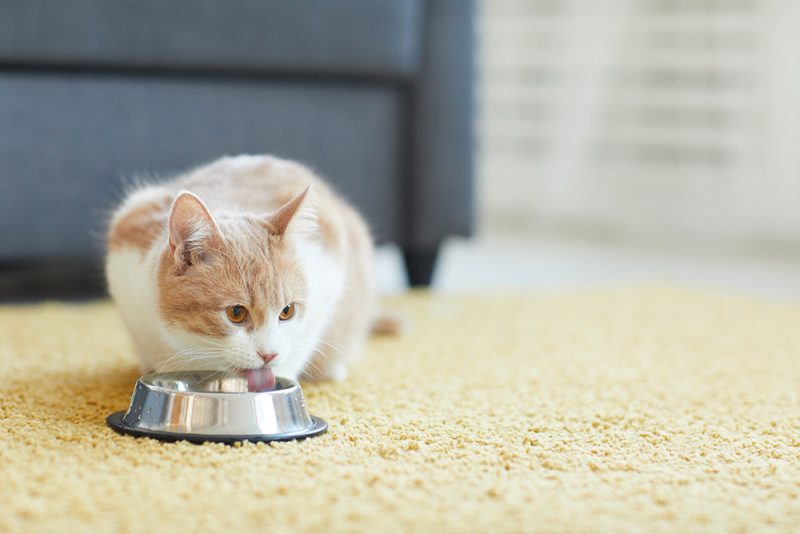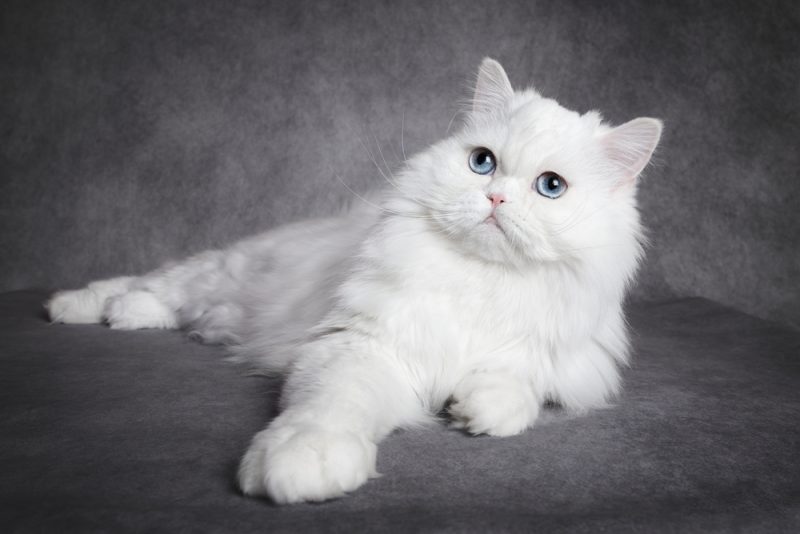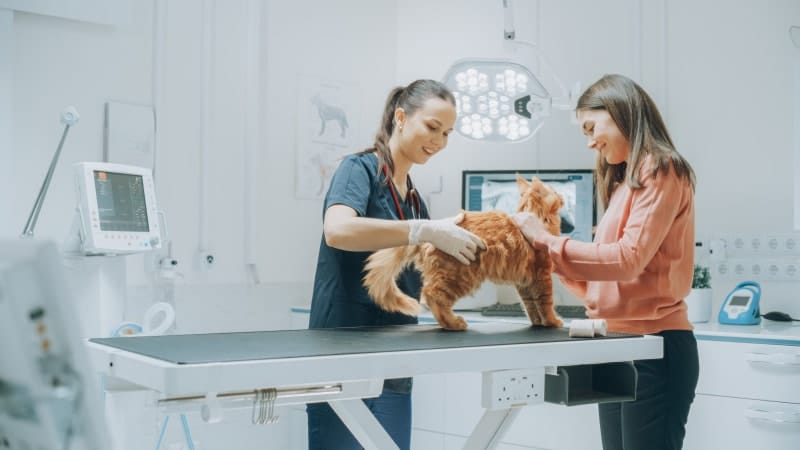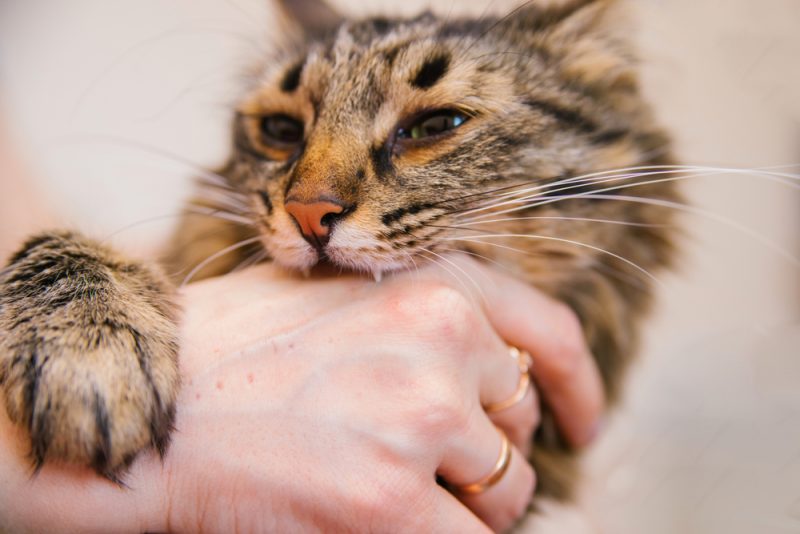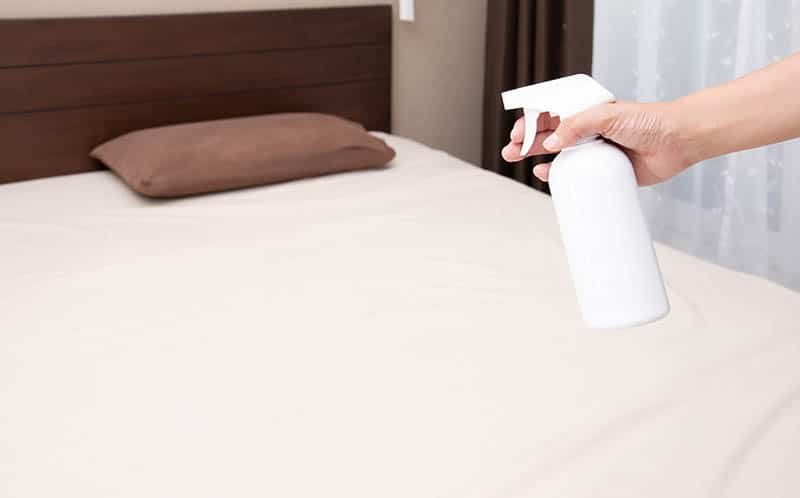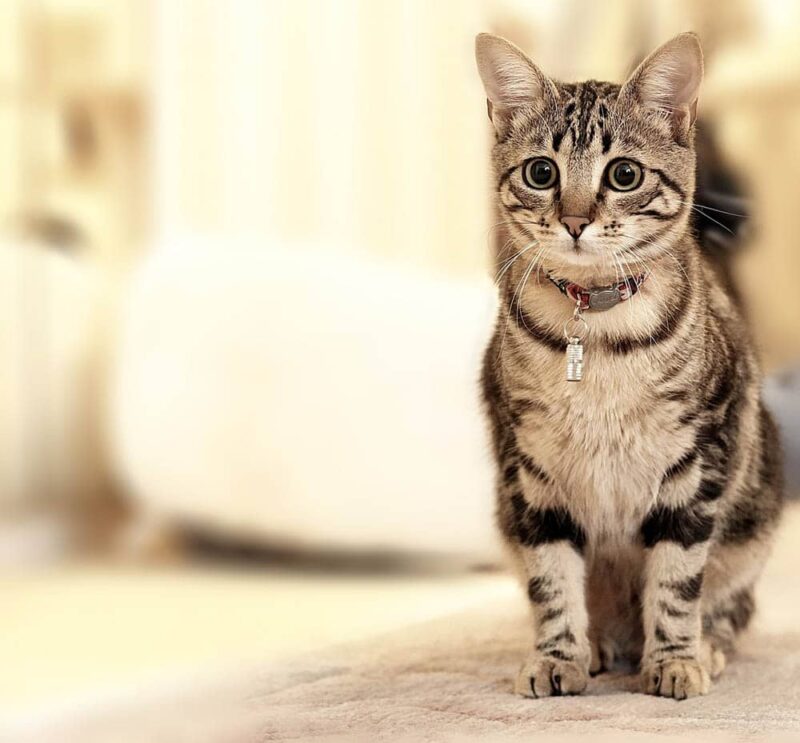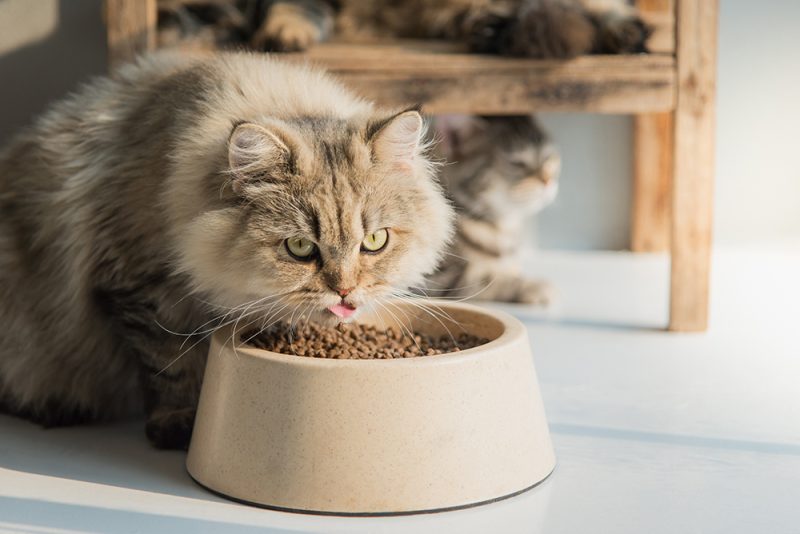In this article
When your senior cat (or a cat of any age, for that matter) that is usually fastidious about using their litter box suddenly starts urinating all over your home, it can be worrying, to say the least. Cat pee is particularly pungent, and your entire home can begin reeking of the smell of cat urine in no time.
Besides the frustration of constantly cleaning a smelly mess, this behavior is also highly concerning for cat owners, and you may begin to worry about what has suddenly gotten into your cat. Fortunately, the underlying causes and solutions to your old cat peeing everywhere are fairly easy to determine, although there is occasionally something more serious at hand.
In general, there are usually only two reasons that your elderly cat urinating everywhere: a medical issue or a behavioral issue. In this article, we look at the possible causes of these issues, as well as steps that you can take to help your feline. Let’s get started!

Elderly Cat Urinating Everywhere
You may assume that since your cat has been well-behaved about using a litter box their whole life, they are now immune to behavioral issues, but this is simply not true. Several triggers can potentially cause your cat to step out of their usual routine and develop new behavioral problems. Alternatively, they may be experiencing new health issues. If the problem happens to be behavioral, you may be able to reverse the issue in a few simple steps and with some pet-friendly products.
Cleaning up after our pets is not the most enjoyable part of owning them. Despite keeping a clean litterbox, cat odors and stains may still exist around the house. Sometimes, even the best litter box setup needs extra help. If you're tired of dealing with bad smells from litter boxes, Hepper Advanced Bio-Enzyme Pet Stain & Odor Eliminator Spray can help with the worst pet stains and smells. Additionally, the Advanced Bio-Enzyme Cat Litter Deodorizer neutralizes odors upon contact.
Our Favorite Products
| Image | Product | Details | |
|---|---|---|---|
Best Enzyme Cleaner
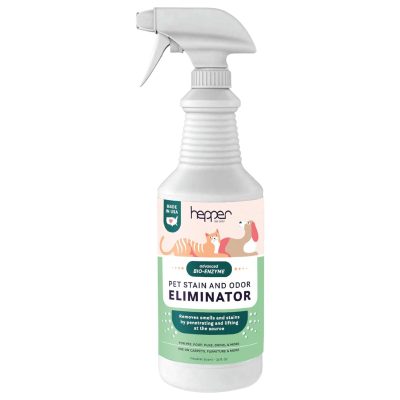
|
Hepper Advanced Bio-Enzyme Pet Stain & Odor Eliminator Spray |
|
CHECK PRICE |
Best Litter Additive
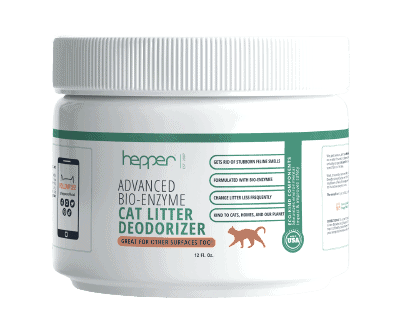
|
Advanced Bio-Enzyme Cat Litter Deodorizer |
|
CHECK PRICE |
At Catster, we’ve admired Hepper for many years and decided to take a controlling ownership interest so that we could benefit from the outstanding designs of this cool cat company!

Behavioral Reasons
It is important to note that keeping your cat’s litter box area clean is a sure fire way to ensure they continue to use it, especially for aging cats who may become quite particular about the condition of their litter box.
Dirty Litter Box
This may seem obvious, but the first thing to check is that your cat’s litter box is clean. Cats are notoriously fussy animals, particularly about their toilets, and its not uncommon to see an old cat peeing outside their litter box. An even slightly messy litter box may cause them to do their business elsewhere. Make sure their litter box is as clean as possible at all times and this may solve the issue.
- Fun Fact: Did you know that using a litter deodorizer can significantly reduce the smell of cat odors in and around your litter box area? They can!
Change in Litter Box
If you have purchased a new type of litter box or litter, this can cause your cat to urinate all over the home. They may not enjoy the new design of the box or the smell of the litter, or their aging body may find it too difficult to get into the box. Be sure to give your cat more than one option of litter box, as they enjoy choices. If you notice them predominantly using the old box or old litter, it may be the new purchase that has put them off.
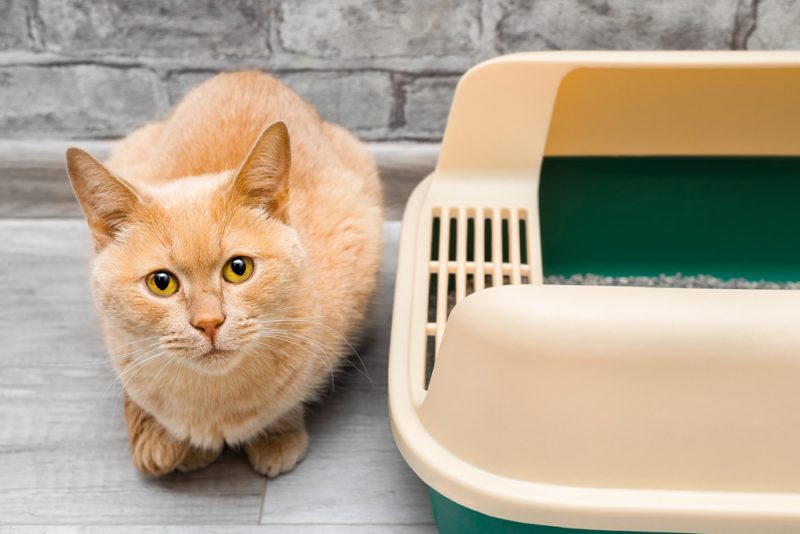
Lingering Urine Smell
Lastly, cat owners know the lingering, potent smell of cat urine, and it can be exceedingly difficult to remove the stench, depending on where it is. If your cat has begun avoiding their litter box due to any of the previously mentioned reasons, chances are high that their super sense of smell can pick up the lingering urine odor on the carpet or sofa, and they now consider this area a great litter box replacement! If this is the case, you may need to get your carpet deep cleaned to completely remove the odor, and restrict your cat’s access to the area for as long as possible until the smell is completely eradicated.
- Related Read: Review our list of pet-friendly enzyme cleaners that are safe and effective at lifting pet stains and odors.
Change in Routine
Cats enjoy routine and doing things their own way, especially senior cats. A sudden change or interruption in their routine may be the cause of their peeing all over the home. Moving to a new house, bringing home a new pet, a sudden surge of visitors, or even abnormally loud noises can all cause your cat stress. Something may have specifically caused them stress while they were using their litter box, and they are now too afraid to use it again. Try to identify the potential cause of stress in your cat’s life and take the necessary steps to reverse it, halt it, or get them accustomed to it.

Cat Medical Issues
Your cat’s aversion to their litter box may be caused by medical issues that you may not have noticed yet — cats are experts at hiding illness. If all is well with their litter box and they are not noticeably stressed, there may be an underlying medical issue, and you’ll need to take your feline for a checkup with the vet. Common medical issues that could be causing them to urinate everywhere might include the following.
If you need to speak with a vet but can't get to one, head over to PangoVet. It's an online service where you can talk to a vet online and get the advice you need for your pet — all at an affordable price!

Degenerative Joint Disease
Arthritis or some other form of painful degenerative joint disease may make it difficult for your aging cat to access their litter box, and they’ll simply begin to go wherever is easiest. Make sure that their litter box has low sides that are easy to access, that their box is not at the bottom or top of long sets of stairs, and that they have multiple litter box options around the home. Your vet will also be able to prescribe appropriate medication to help alleviate some of the symptoms and pain of certain conditions.
Bladder Stones
Bladder stones or bladder crystals, the precursor to bladder stones, can cause tremendous pain for your feline, and this may be the cause of their inappropriate urination. You’ll need to ask your vet about treatment, as it can differ according to the size of the stone. Smaller stones can be dissolved with medication and diet, whereas larger stones may need to be removed surgically.
Urinary Tract Infections (UTI)
A UTI is a fairly common occurrence in older felines, and the disorder is caused by bacteria in the urine that can cause an inflammatory response, resulting in a painful infection. Your cat may associate this pain with their litter box and, consequently, will find somewhere else to do their business. You’ll need to take your cat to the vet, and they’ll usually put your cat on a course of antibiotics.
Urinary problems can quickly lead to more serious issues, especially in older cats, so if you notice any signs of pain or discomfort while your cat is urinating, you should make sure to visit your vet as soon as possible.
- ADVANCED ENZYMATIC CLEANER - Penetrates the most stubborn smells and stains at the deepest molecular...
- FOR ANY MESS, ON ANY SURFACE - This pet odor eliminator cleans your carpets, floors, furniture,...
- FRESH, NATURAL ODOR - Our unique formulation doesn't rely on dangerous or unpleasant chemical...

Final Thoughts
While it’s fairly normal to have an old cat peeing everywhere and aging cats tend to have bodily or behavioral issues that affect their bathroom habits, there are definitely things that you can do to stop or even prevent them from peeing all over your home. By making sure that their litter box is clean and located in a private, calm space, keeping their lives as stress-free as possible, and making sure to visit the vet as soon as any issues crop up, you can easily avoid the situation altogether or nip it in the bud as fast as possible.
Related Read:
- Cats Peeing in the Sink or Bath Tub? Ways to Stop it
- DIY Homemade Cat Urine Stain & Odor Removers To Try (With Pictures)
Featured Image Credit: nanniezwawa, Shutterstock
